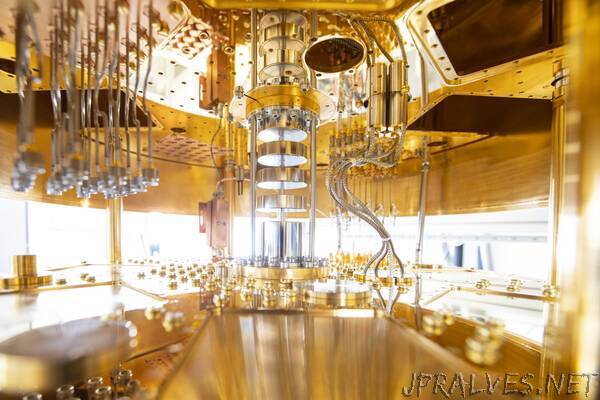
“Major Collaboration to Fuel Research on NVIDIA-Accelerated Systems Running HPC and Quantum Computing Workloads
In a major step forward for the field of hybrid quantum-classical computing, NVIDIA today announced plans to build a new lab with the Jülich Supercomputing Centre (JSC) at Forschungszentrum Jülich (FZJ) that will feature a classical-quantum supercomputer in partnership with ParTec AG, Munich, based on the NVIDIA® quantum computing platform.
FZJ, one of the largest interdisciplinary research centers in Europe, will host the lab as part of the Jülich UNified Infrastructure for Quantum Computing (JUNIQ) to run high-performance and low-latency quantum-classical computing workloads. JUNIQ is currently using the JUWELS booster system with 3,744 NVIDIA A100 Tensor Core GPUs for quantum computing simulations.
The NVIDIA quantum computing platform enables tight integration of quantum and classical computing through the open-source CUDA® Quantum programming model and world-class simulation through the NVIDIA cuQuantum software development kit.
JSC plans to use a phased approach to test the system and will use the NVIDIA CUDA Quantum programming model to program quantum processors and integrate them within the Jülich exascale modular supercomputing architecture.
“Unifying quantum computing and GPU supercomputing is a key part of enabling the scientific breakthroughs of tomorrow,” said Timothy Costa, director of HPC and quantum at NVIDIA. “NVIDIA’s collaboration with innovators such as the Jülich Supercomputing Centre and ParTec represents an important milestone for quantum-classical computing, making it accessible to countless new researchers and bringing the first quantum-accelerated supercomputer one step closer.”
“Hybrid quantum-classical systems are bringing quantum computing closer to reality to solve complex problems that classical computing alone is unable to do,” said Kristel Michielsen, head of the quantum information processing group at JSC. “By partnering with NVIDIA on the modular quantum computing laboratory, JSC’s researchers can make unprecedented strides in chemistry and material sciences that drive broader, transformative progress across science disciplines and industries.”
“ParTec has a long history as a driving force in developing the Modular Supercomputing Architecture with its world-class ParaStation Modulo software enabling hybrid, modular computing,” said Bernhard Frohwitter, CEO of ParTec AG. “Quantum computers will be an essential element of any future heterogeneous supercomputer. This development will open totally new possibilities.””
